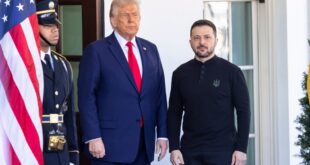One of the United States government’s top counterterrorism officials says Congress must help investigators crack the encrypted communications of terrorists as groups like the so-called Islamic State ramp-up their online recruitment efforts.
On Capitol Hill on Wednesday, Michael Steinbach, the assistant director of the Federal Bureau of Investigation’s counterterrorism division, told the House Homeland Security Committee that the FBI is “imploring for Congress to help” law enforcement with its quest to decrypt digital communications.
Steinbach said that the FBI is working with the Department of Homeland Security to ensure that the law enforcement tactics currently in use can be implemented as needed, but suggested that legislation might be needed for situations where communications being sought are obfuscated from the eyes of investigators by encryption or other means.
According to Steinbach, individuals belonging to the group calling itself the Islamic State (also known as ISIS, or ISIL), are making the jobs of counterterrorism investigators increasingly difficult by relying more and more on methods of communication that cannot be compromised as easily as more mainstream mediums.
t’s no secret that ISIS proclaims its ideology far and wide with the help of social networking tools like Twitter, enabling the message to be spread among the public instantly. A report issued by the Brookings Institute this past March alleged the individuals sympathetic with ISIS opened at least 46,000 Twitter accounts during the last quarter of 2014, and slickly produced propaganda that the group amplifies with professional social media software has done anything but draw away attention. According to Steinbach, upwards of 20,000 Twitter account holders can end up on the receiving end of a single tweet sent by the group or one of its supporters.
“Unfortunately, social media is a great tool for the public,” he said, “but it also allows for this horizontal distribution which is very difficult to follow.”
Twitter actively suspends ISIS-affiliated accounts, according to the Brookings report, but collecting the private messages of accounts isn’t easy as having a person’s profile shut-down and requires legal action which Steinbach and others think should be easier to achieve.
The blatant spreading of ISIS-endorsed messages and ideals on the open web notwithstanding, backchannel communications sent privately between suspected members and sympathizers are complicating matters for federal investigators, Steinbach said.
 Geostrategic Media Political Commentary, Analysis, Security, Defense
Geostrategic Media Political Commentary, Analysis, Security, Defense





